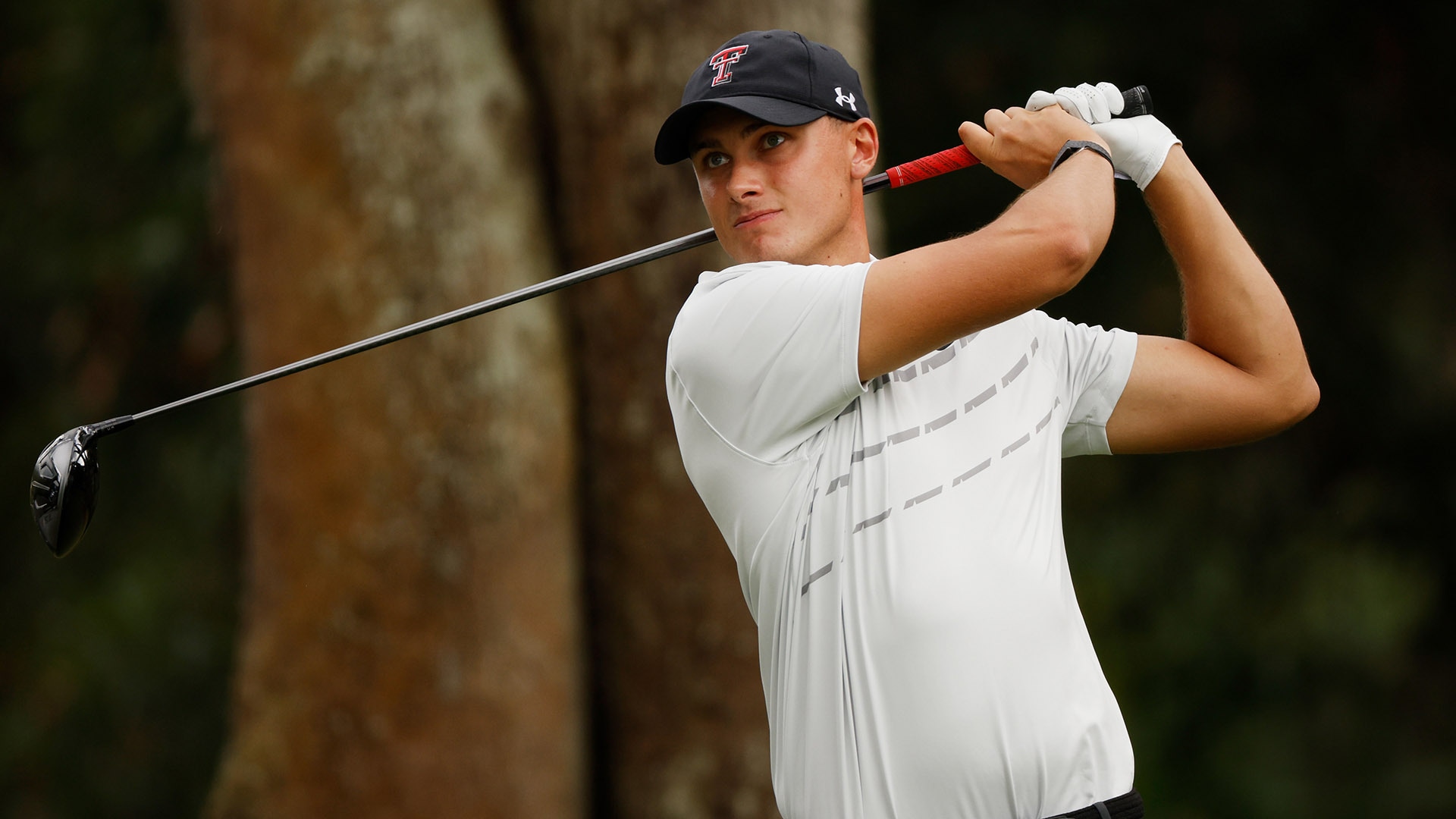PGA Tour Offering Two Pathways for Top-Performing College Players

College golfers now have two opportunities to land on the PGA Tour.
The PGA Tour Policy Board on Monday approved changes to the PGA Tour University program that will grant the top-finishing senior a Tour card at the end of the college season. The Tour is also introducing an “Accelerated” program that would allow high-performing underclassmen a direct pathway to the Tour if he crosses a certain threshold.
Both changes – which were first reported by Golf Channel last month – are effective immediately.
The PGA Tour University program, based on a senior’s performance in eligible college and professional tournaments, was unveiled in 2020 and offered access to the Korn Ferry Tour. The improvements finalized Monday are viewed as a direct response to LIV Golf securing commitments from a handful of promising up-and-comers, including former Oklahoma State star Eugenio Chacarra, who joined LIV after his junior season and won in his debut season.
Now, the top finisher in the PGA Tour University standings will earn Tour membership after the NCAA Championship and be eligible for all open, full-field tournaments for the remainder of the year, likely about 14 events. The top player will also be exempt into the final stage of PGA Tour Q-School.
The current top-ranked player in the PGA Tour University standings is Ludvig Aberg, who is also No. 1 in the World Amateur Golf Rankings. Former U.S. Amateur finalist Austin Greaser of North Carolina is No. 2. Had the system been in place before 2020, the Tour said that Jon Rahm, Collin Morikawa and Sahith Theegala would have earned immediate Tour membership.
The perks for the others in the standings remain the same: Nos. 2-5 are exempt on the Korn Ferry Tour and into the final stage of Q-School, while Nos. 6-10 earn conditional membership on the Korn Ferry Tour, status in Canada and Latin America, and exemptions into second stage of qualifying.
Perhaps even more significant was the introduction of the Accelerated program, which will allow players to begin accruing points as freshmen.
A college player will receive automatic Tour membership if he amasses at least 20 points by the end of his third year of eligibility. The Tour notes that only three players would have benefited from this program since 2010: Patrick Cantlay, Justin Thomas and Patrick Rodgers.
Stanford junior Michael Thorbjornsen (12 points) and Vanderbilt sophomore and reigning NCAA individual champion Gordon Sargent of Vanderbilt (10) are currently in the running for this instant promotion.
Here is how a player can accrue points:
• Win a major college golf award such as the Haskins (3 points), Hogan (3), Nicklaus (3) or Outstanding Freshman (2);
• Capture an NCAA individual championship, U.S. Amateur or British Amateur (all 3 points), or the Western Amateur, European Amateur, Latin America Amateur and Asia-Pacific Amateur (all 2 points);
• Earn a career-best rank in the World Amateur Golf Ranking (No. 1 receives 5 points, No. 2 gets 4 points, No. 3 earns 3 points, No. 4 gets 2 points and No. 5 receives 1 point);
• Compete in official PGA Tour events and majors, with 1 point apiece for a made cut in a Tour event, a top-10 in a Tour event, a major championship appearance and a made cut in a major; players will receive 2 points for a top-20 in a major;
• Or participate on a national team, with the Walker Cup (2 points), Palmer Cup (1 point) and World Amateur Team Championship (1) all counting.
“Success at the highest levels of college and amateur golf has proven to be a strong indicator of a player’s potential as a professional golfer,” PGA Tour commissioner Jay Monahan said. “The first two classes of PGA Tour University have shown us that these players are ready to compete and win immediately, and these two additions to the program further strengthen our commitment to college golf and will provide future stars with direct access to the PGA Tour.”
